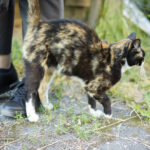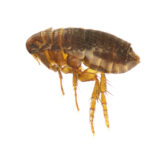
Need Help? Call Us On 0161 776 9832 For Expert Pest Control Advice On How To Identify Pest Infestations And Help Solve Your Pest Problem.
Youngs Pest Control Flea Treatments in Heyrod
At Youngs Pest Control, we understand the difficulty of dealing with flea infestations. That's why we're here to help. We
We at Youngs Pest Control are a local family-run business that strives to keep properties free of fleas for you and your family. Our technicians are experts in the field, so if fleas have taken over, don't hesitate to give us a call.
Some of the services we offer include :
- Flea eradication
- Inspections
- Treatments
- Follow up services
- Prevention Tips
At Youngs Pest Control, we understand the frustration and discomfort that comes with a flea infestation. Our team of trained professionals are dedicated to providing effective flea treatments in Heyrod and surrounding areas. With years of experience and expertise, we can ensure that your home or business is free from these pesky pests.
Fleas are small parasites that feed on the blood of mammals, including humans. They can easily spread from one host to another, making it important to treat any infestations as soon as possible. Fleas can cause a range of problems, including skin irritation, allergic reactions, and even transmit diseases. At Youngs Pest Control in Heyrod, we use safe and effective methods to eliminate fleas from your property. We will come over and assess the severity and develop a treatment plan tailored to your specific needs.
Fleas spread by which means
Fleas are very masters at spreading and can multiply rapidly. A single female flea can lay up to 50 eggs in a day. These parasitic insects feed on the blood of birds and mammals, which enables them to pass on to pets and humans all sorts of diseases. Fleas can jump up to 7 inches high and 13 inches wide, which helps them to move easily from one host to another. They can also cling to clothing, which facilitates their spread from one place to another.
These pests will attach themselves to clothing and other personal belongings to hitch a ride to a new environment, or they could even get to your home by means of wild animals that spread them while searching for food or water, and they leave these eggs or adult fleas around your property, and as soon as a host is nearby, they will latch onto them.
Why must you Treat for fleas
You should never let a flea infestation go untreated because it can quickly multiply and spread throughout your home, causing discomfort, skin irritation, and potential health risks for you and your pets. Fleas are known carriers of diseases such as typhus and plague.
Why an infestation needs your urgent attention
Health risks- Fleas pose a great danger to human health. They can easily transmit diseases.
Rapid reproduction - Flea's reproduction cycle is extremely fast and can cause an infestation in a matter of days.
FAD- Flea Allergy Dermatitis is a skin condition that develops in people that have allergies and are sensitive to flea bites. This condition causes swelling, itching and rashes.
Post-treatment: steps to follow
Once the flea treatment is complete, it's time to enjoy a home free of those pesky critters and relax without the constant worry of bites or itching. However, there are some important steps that need to be taken after treatment for long-lasting flea control and eradication.
Firstly, it's important to vacuum your home thoroughly to remove any dead fleas, eggs or larvae that may still be present. Pay special attention to areas where pets spend most of their time, such as carpets, rugs and bedding. It's also advisable to wash all pet bedding in hot water or replace it altogether if heavily infested with fleas. Lastly, keep your pets treated with a regular flea-preventative medication recommended by your veterinarian, which will help prevent future outbreaks.
DIY Flea Control: How to Avoid Disasters and the Risks of Ineffective Treatment
If you think you can handle flea control on your own, you might be in for a rude awakening with the consequences of using outdated or ineffective methods. Fleas are hard to get rid of, and DIY disasters can lead to long-term infestations that require professional treatment for fleas. Here are four reasons why DIY flea control is risky:
1. Ineffective treatments: Over-the-counter products can be ineffective, and that will negatively affect your pocket with no results.
2. Chemical exposure: Some DIY treatments use harsh chemicals that pose health risks to humans and pets if not handled properly.
3. Misidentification: Misidentifying the type of pest can lead to ineffective treatments or even treating non-pests, causing more harm than good.
4. Resistance: Fleas have evolved resistance to some common insecticides used in DIY treatments, rendering them useless.

We also service Neighboring areas like Stalybridge and Mossley.
SK15
